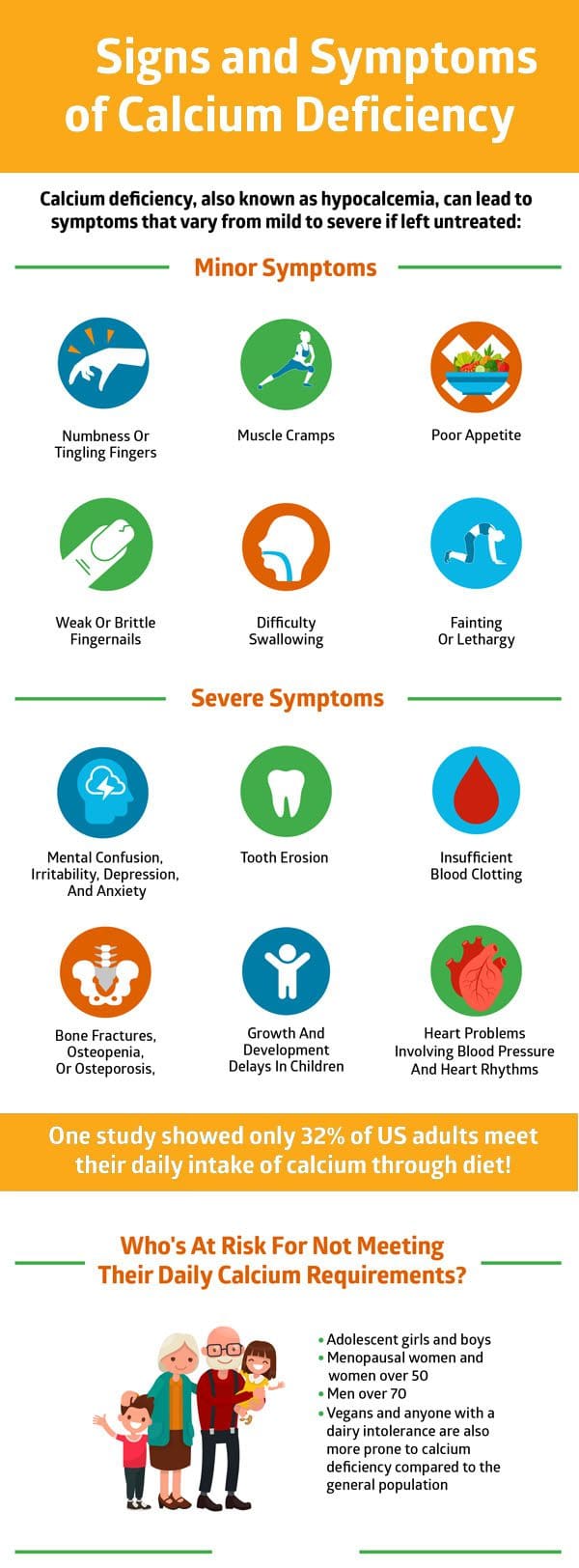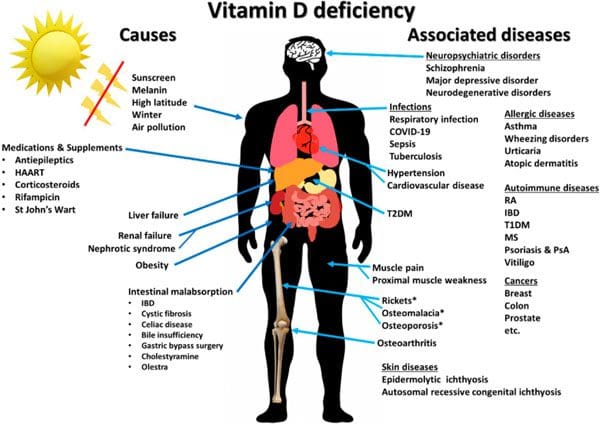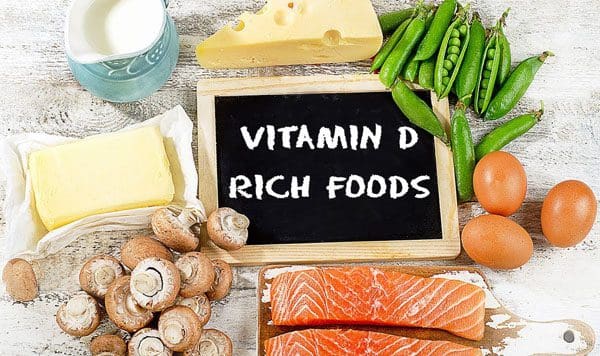Calcium and Vitamin D for Optimal Bone Health

Calcium
How much calcium the body needs depends on various factors, that include age. Listed are basic recommendations of calcium intake by age, but individuals should talk with a doctor about how much calcium is best for them on a daily basis.Children and Young Adults
- 1-3 years of age 500mg
- 4-8 years of age 800mg
- 9-18 years of age 1,300mg
Adult Men and Women
- 19-49 years of age 1,000mg
- 50+ years of age 1,200mg
Women Pregnant and Breastfeeding
- Under 18 years of age 1,300mg
- 19+ years of age 1,000mg

- Cooked Broccoli 60mg in 8 oz.
- Fruit Juice with Added Calcium 200-260mg in 6 oz.
- Low-fat and Skim Milk 300mg in 8 oz.
- Low-fat Plain Yogurt 415mg in 8 oz.
- Swiss Cheese 220-270mg in 1 oz.

Vitamin D
Vitamin D is what helps the body absorb calcium. The body makes vitamin D when outside in the sun. This is a perfect reason to go outside more often. 15 minutes of exposure to the sun every day will significantly increase vitamin D production. Some individuals are not able to make enough vitamin D, no matter how much sunlight exposure. However, Vitamin D is also found in various foods like:- Egg Yolks
- Vitamin D-fortified Milk
- Fatty fish – salmon, sardines
- Liver
- Healthy breakfast cereals

Children and Young Adults
IU stands for international units which are how vitamin D is measured.- 1-18 years of age 400 IU
Adult Men and Women
- 19-49 years of age 400-800 IU
- 50+ years of age 800-1,000 IU
Women Pregnant and Breastfeeding
- Any age 400-800 IU
Chiropractic Care and CrossFit Rehabilitation
Dr. Alex Jimenez’s Blog Post Disclaimer
The scope of our information is limited to chiropractic, musculoskeletal, physical medicines, wellness, and sensitive health issues and/or functional medicine articles, topics, and discussions. We use functional health & wellness protocols to treat and support care for injuries or disorders of the musculoskeletal system. Our posts, topics, subjects, and insights cover clinical matters, issues, and topics that relate and support directly or indirectly our clinical scope of practice.* Our office has made a reasonable attempt to provide supportive citations and has identified the relevant research study or studies supporting our posts. We also make copies of supporting research studies available to the board and or the public upon request. We understand that we cover matters that require an additional explanation as to how it may assist in a particular care plan or treatment protocol; therefore, to further discuss the subject matter above, please feel free to ask Dr. Alex Jimenez or contact us at 915-850-0900. The provider(s) Licensed in Texas& New Mexico*References
Fischer, V et al. “Calcium and vitamin D in bone fracture healing and post-traumatic bone turnover.â€Â European cells & materials vol. 35 365-385. 22 Jun. 2018, doi:10.22203/eCM.v035a25Post Disclaimers
Professional Scope of Practice *
The information herein on "Calcium and Vitamin D for Optimal Bone Health" is not intended to replace a one-on-one relationship with a qualified health care professional or licensed physician and is not medical advice. We encourage you to make healthcare decisions based on your research and partnership with a qualified healthcare professional.
Blog Information & Scope Discussions
Our information scope is limited to Chiropractic, musculoskeletal, physical medicines, wellness, contributing etiological viscerosomatic disturbances within clinical presentations, associated somatovisceral reflex clinical dynamics, subluxation complexes, sensitive health issues, and/or functional medicine articles, topics, and discussions.
We provide and present clinical collaboration with specialists from various disciplines. Each specialist is governed by their professional scope of practice and their jurisdiction of licensure. We use functional health & wellness protocols to treat and support care for the injuries or disorders of the musculoskeletal system.
Our videos, posts, topics, subjects, and insights cover clinical matters, issues, and topics that relate to and directly or indirectly support our clinical scope of practice.*
Our office has reasonably attempted to provide supportive citations and has identified the relevant research study or studies supporting our posts. We provide copies of supporting research studies available to regulatory boards and the public upon request.
We understand that we cover matters that require an additional explanation of how it may assist in a particular care plan or treatment protocol; therefore, to further discuss the subject matter above, please feel free to ask Dr. Alex Jimenez, DC, or contact us at 915-850-0900.
We are here to help you and your family.
Blessings
Dr. Alex Jimenez DC, MSACP, RN*, CCST, IFMCP*, CIFM*, ATN*
email: coach@elpasofunctionalmedicine.com
Licensed as a Doctor of Chiropractic (DC) in Texas & New Mexico*
Texas DC License # TX5807, New Mexico DC License # NM-DC2182
Licensed as a Registered Nurse (RN*) in Florida
Florida License RN License # RN9617241 (Control No. 3558029)
Compact Status: Multi-State License: Authorized to Practice in 40 States*
Presently Matriculated: ICHS: MSN* FNP (Family Nurse Practitioner Program)
Dr. Alex Jimenez DC, MSACP, RN* CIFM*, IFMCP*, ATN*, CCST
My Digital Business Card






 Again, I Welcome You.
Again, I Welcome You.
Comments are closed.